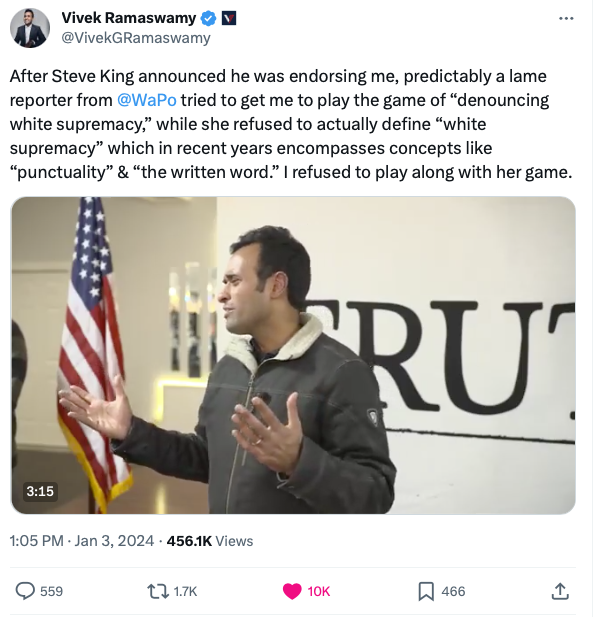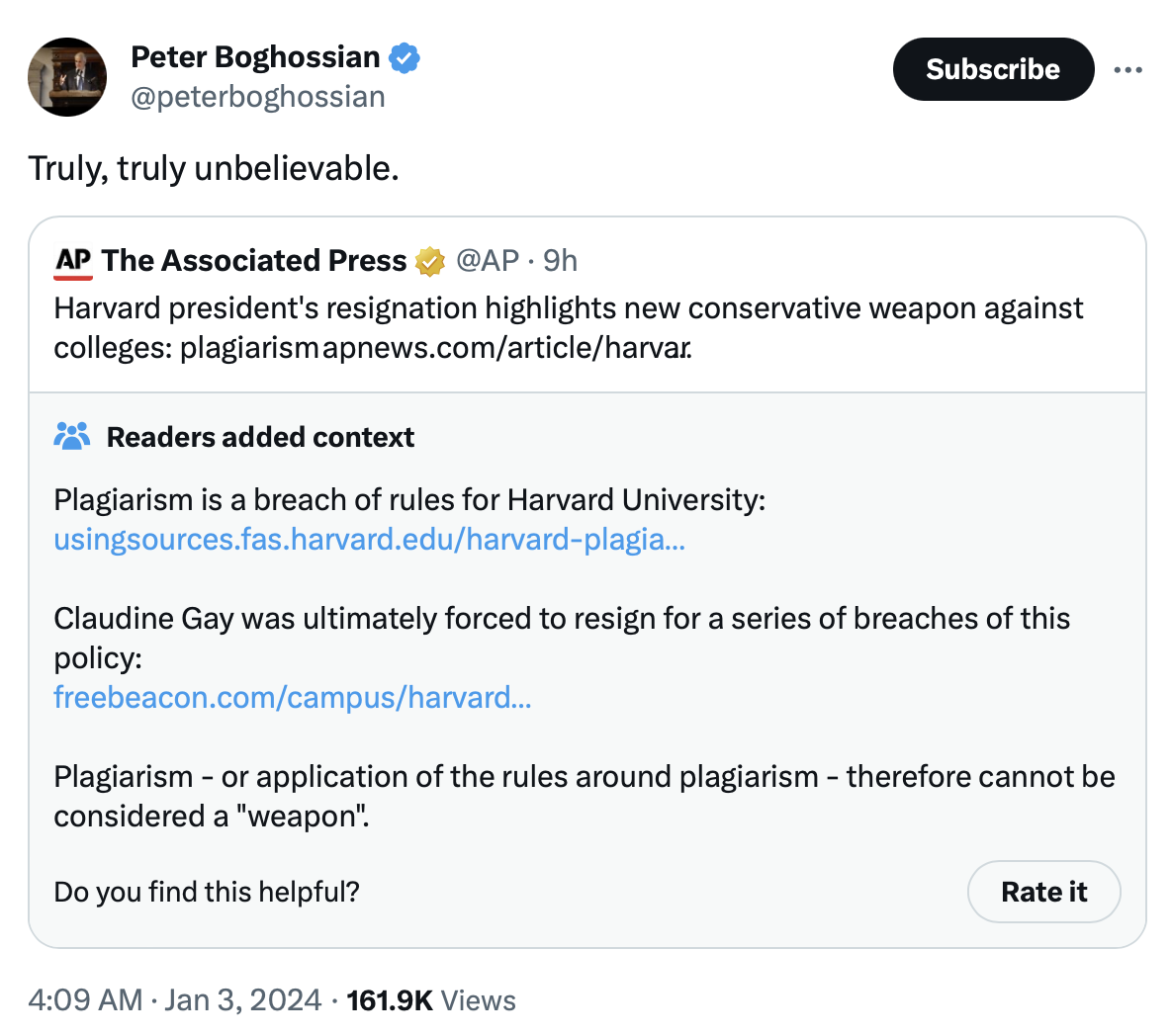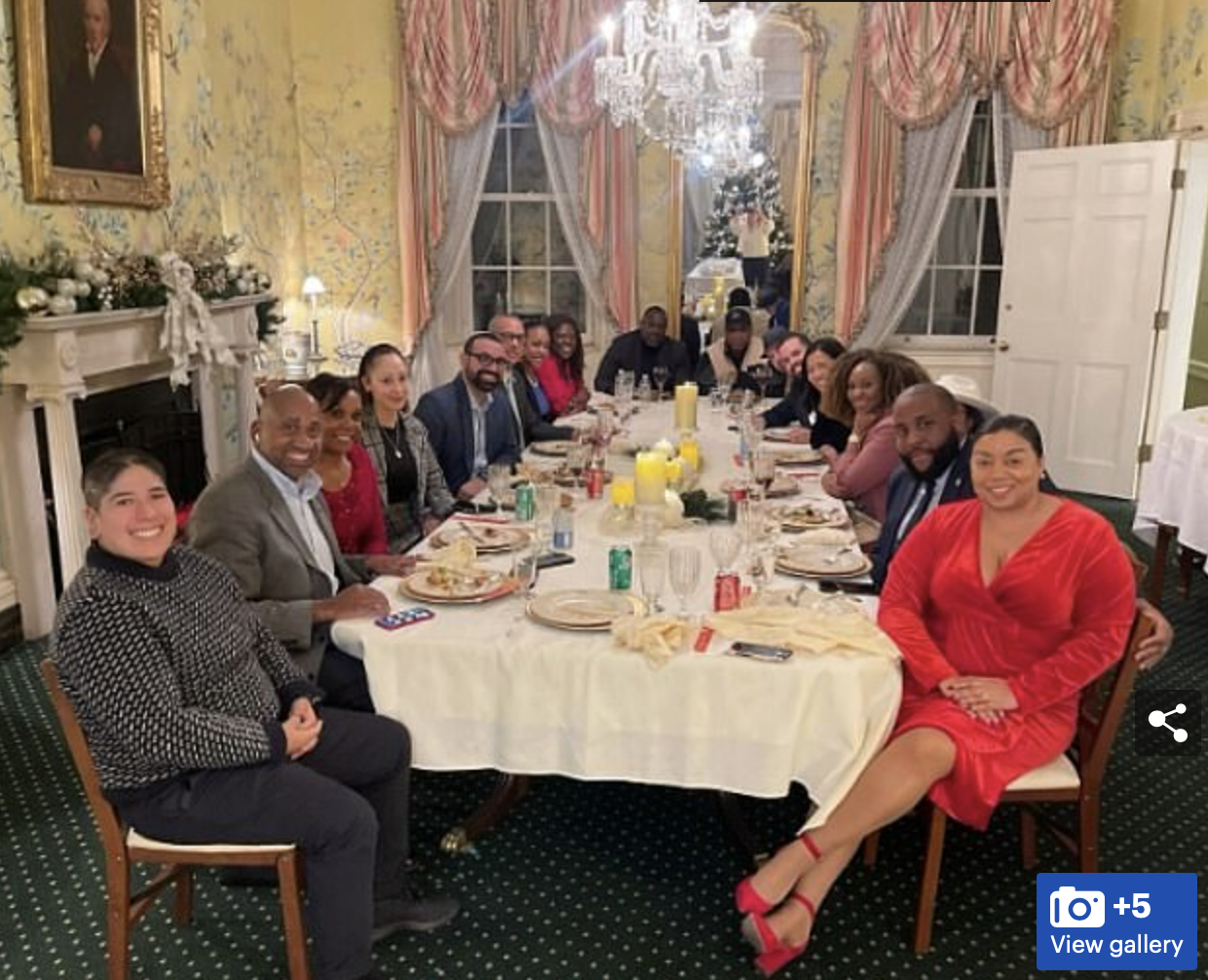
The conversation:
Washington Post Reporter: Do you condemn white supremacy and white nationalism?
Vivek Ramaswamy: I mean, what this? Who are you with? With the Washington Washington Post? Alright, so Potato Potato, okay.
Of course, I condemn any form of vicious racial discrimination in this country. But I think that the presumption of your question is fundamentally based on a falsehood, that that really is the main form of racial discrimination we see in this country today. Institutionalized racial discrimination that we see doesn't come from somehow discriminate against people on the basis of some tentative white supremacy. It's based on affirmative action. It's based on actually discriminating against people on the color of their skin in a way that's actually institutionalized today. Was there a point in our history, a point in our prior national history where there have been vicious forms of anti-black or anti-brown discrimination throughout this country after the Civil War and otherwise? Yes. But you're looking in the rearview mirror and using that to pose a question today that is so far removed from what the reality is in America today, this myth of white supremacy. The closest you can find is Jesse Smollet, where you were all were actually speaking of trust in the media jumping up and down over some false narrative. The best way you're able to find your best instance of white supremacy was a guy who was actually paying his other fellow people to be actually staging something that didn't happen.
And so stop picking on this farce of some figment that exists at some infinitesimally small fringe of the American public today to open our eyes to the actual real threats that we face. And I think that it's frankly questions and framings like that have caused the American public to lose all trust in the mainstream media, I'm sorry to say, for good reason.
Washington Post: Can you say that you condemn white supremacy?
Vivek Ramaswamy: I'm not going to recite some catechism for you. I'm against vicious racial discrimination in this country. So I'm not pledging allegiance to your new religion of modern wokeism, which actually fits fits the test. I'm not going to bend a knee to your religion. I'm sorry. I'm not asking you to bend the knee to mine. And I'm not going to bend the knee to yours. But do I condemn vicious racial discrimination? Yes, I do. Am I going to play your silly game of gotcha? No, I'm not.





